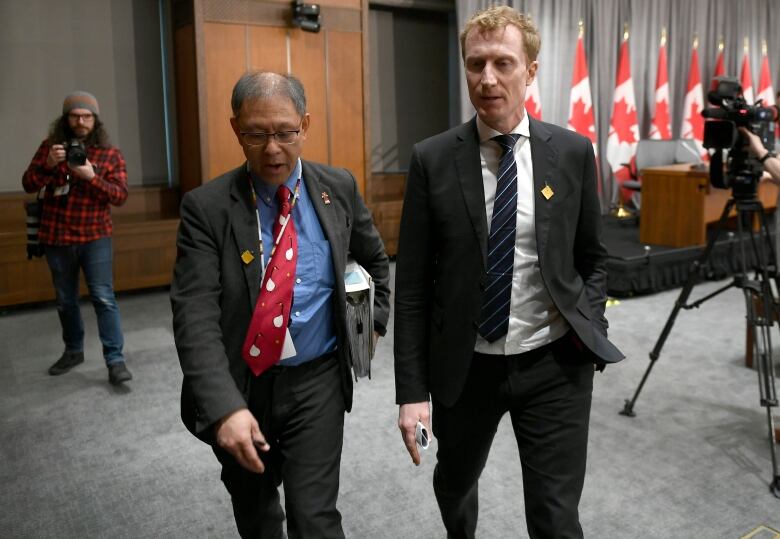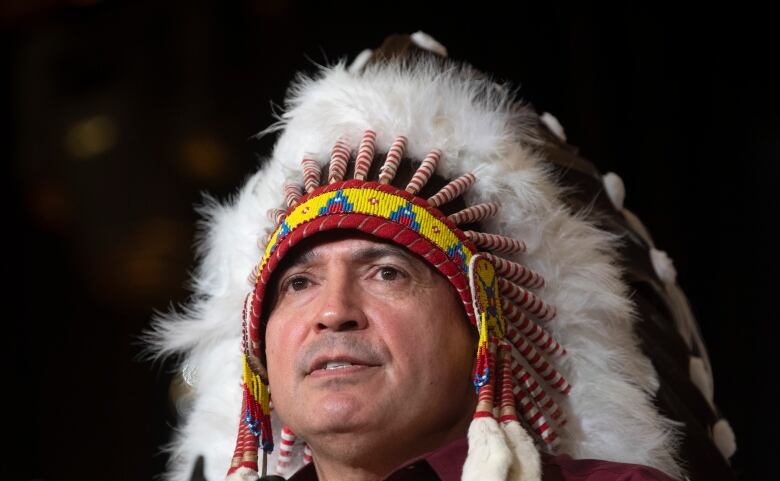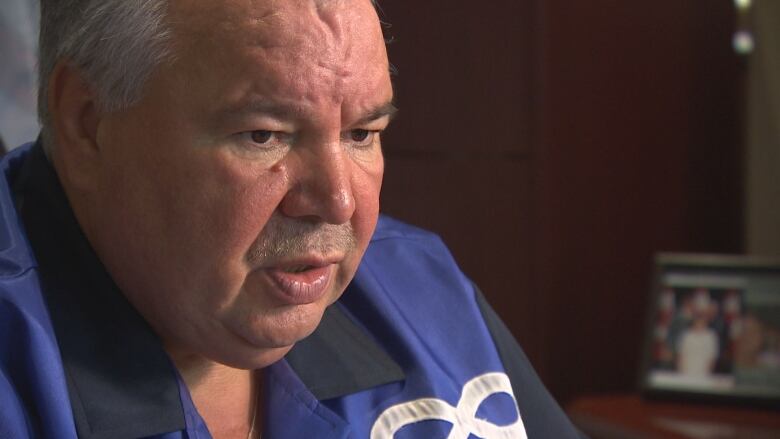No Indigenous community will be 'left behind' in COVID-19 response, says minister
Indigenous Services Canada says it's already sent supplies to 68 First Nations for COVID-19 preparations

Indigenous communities will get the supplies and resources they need to prepare for localCOVID-19 outbreaks and teams are now ready to deploy to those communitiesif an emergency flares, sayfederal officials.
"Indigenous Services is here to help adapt and activate plans for your communities. No community will be left behind," Indigenous Services Minister Marc Miller said today.
"We're here to mobilize supplies. We are here to address the vulnerabilities of Indigenous communities, and recognize that we can only do this in close collaboration with Indigenous leadership across this country."
The federal government is offering $305 million to address the immediate needs of First Nations, Mtis and Inuit communities, and to get out public health messages in those communities, said Miller.
The federal government also has established a $100 million envelope that Indigenous communities can draw from to build up a stock of medical supplies and develop a response.
Indigenous communities can submit requests to the department'sregional networks to access funding, which will be distributed based on public health advice and need, said Miller.
Prime Minister Justin Trudeau said the money will be usedas the communities themselves see fit.
"We recognize that Indigenous Canadians are faced with greater health vulnerabilities and greater economic challenges than most Canadians at the best of times," Trudeau said today outside his Ottawa home at Rideau Cottage, where he is in self-isolation after his wife Sophie tested positive for the virus.
"There is a need for special support and special care for Indigenous communities and Indigenous Canadians right across the country."
Community pandemic plans need updating
Canada's Chief Public Health OfficerDr. Theresa Tamalso acknowledged today that First Nations, Inuit and Mtis face a higher risk of severe outcomes from COVID-19 due to health inequities, higher rates of underlying medical conditions and challenges caused by living in remote and fly-in communities.
These factorshave been blamed for makingIndigenous communities disproportionately vulnerable to pandemics in the past, such as the H1N1 virus.
"These things are unacceptable," Miller said.

The minister said it's not a question of it, but when COVID-19 hits Indigenous communities.
"But Indigenous communities have a chance to prepare and address this, and flatten the curve on a community basis," Miller said.
Approximately 87 per cent of Indigenous communities have a pandemic or epidemic plan in place, said Miller, addingthey need to be updated.
National chief calls for focused funding
The department already hassupplied alcohol-based hand sanitizers, personal protective supplies and other equipment to 68 First Nations that haverequested assistance so far. The department said it has a stockpile ready for communities when they need it.
Assembly of First Nations National Chief Perry Bellegarde said he's satisfied with the federal government's response so far.

Bellegarde said he doesn't have any details on how the funds will be divided between First Nation, Inuit and Mtiscommunitiesyet, but he wants the financial support to be targeted to the specific needs of individual communities.
Bellegarde said the funding should account for both on and off-reserve First Nations membership, and also include remoteness as a factor because many of the most vulnerable communities are far north and isolated, with limited transportation options.
"The needs are going to probably go above the $300 million figure that's there," Bellegarde said.
"The northern communities, the fly-in communities are being hit hard by this because there is no extra supply chain up there, so that's why you have to look at cargo planes coming up there."
Mtisgroup says Miller 'causing panic'
David Chartrand, vice-president of the Mtis National Council, said Mtis are feeling left out.
Even though they have received assurances from the prime minister that they will receive funding, Chartrand said Miller has given little indication that the Mtis are included in these plans and appears to be focusing on First Nations.

"Our people are saying, 'Well, what about us?'" saidChartrand, who is in self-isolation at his Winnipeg home with a chest cold he picked up after attending a meeting in Vancouver.
"What [Miller] might not be realizing is that he's causing panic and concern by our citizens because they're not hearing the word Mtis anywhere."
Under federal policy, the First Nations and Inuit Health Branch is responsible onlyfor First Nations and Inuit. The Mtis generally fall under provincial jurisdiction, but Chartrand said his organization doesn't have a good relationship with the Manitoba government.
Chartrand has requested $10 million from the federal government because he said Mtis communities don't have nursing stations or doctors.
Miller is encouraging Indigenous leadership to work with health authorities to establish needs and priorities so that they can coordinate through the provinces. If anyone feels they are not getting an adequate response, Miller said, they can contact him and his teamdirectly.
Funds to be distributed in 'very short order'
Miller said funds will be distributed in"very short order" and will follow a formula that reflects population, remoteness and need. In the meantime, he said, regional offices are deploying some more "modest" emergency funds.
In the event of an emergency, a "surge capacity" team from the department is ready to deploy, saidDr. Tom Wong, chief medical officer of public health at Indigenous Services Canada.
"If the West is having a problem, we can actually mobilize resources from the East in order to address that," Wong said.
"For First Nations, Mtis and Inuit, we want to support them together with our partners the provinces and territories to run faster than the virus."
While provinces and territories have varying protocols on screening, the federal government wants to ensure Indigenous and non-Indigenous Canadians have the same access to screening, said Miller.
Many Indigenous communities don't have hospitals and rely on small nursing stations with staffwho are often on short-term contracts.
Miller said his department is trying to ensure communities have resources and medical personnel available, but this needs to be ironed out with the provinces and territories so there is "seamless access."














_(720p).jpg)


 OFFICIAL HD MUSIC VIDEO.jpg)
.jpg)



























































































